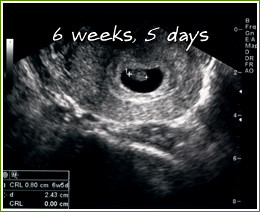
The hCG numbers may be helpful in guiding next steps, but they aren’t an absolute indicator of either a miscarriage or a viable pregnancy.ĭoctors chiefly use doubling times to confirm a pregnancy, not diagnose a miscarriage. Slowly increasing hCG levels don’t necessarily mean you’re miscarrying, though they will usually signal further testing to see if you are.ĭoctors use data based on smaller-scale studies in those who conceived after pregnancy treatments, according to the journal Fertility and Sterility. This is why hCG levels alone aren’t enough to determine what’s going on with 100 percent accuracy.ĭoes a very slow rise necessarily mean miscarriage? On the other hand, it’s also possible to have doubling hCG levels with an ectopic pregnancy. Because an ectopic pregnancy can be a medical emergency, it’s important a doctor identify this as quickly as possible. Levels that are slow to rise can also indicate a non-uterine pregnancy, which happens when the fertilized egg implants somewhere outside the uterus (usually the fallopian tubes). Likewise, levels that aren’t doubling and are only rising very slowly - for example, from 120 mIU/mL to 130 mIU/mL over a period of two days - can indicate a nonviable uterine pregnancy in which a miscarriage may take place soon. For example, a baseline level of 120 mIU/mL that’s dropped to 80 mIU/mL two days later can indicate the embryo is no longer developing and the body isn’t producing more hormones to support its growth. In the event of a miscarriage, hCG levels typically decrease from previous measurements. Other symptoms, such as bleeding or cramping, will also be taken into account.

This could include progesterone blood tests and a transvaginal ultrasound to check your uterus for a gestational sac. If your levels are dropping or rising too slowly, you’ll probably be sent for other testing as well. Medically, this may be called a possible “nonviable pregnancy.”

If your hCG levels don’t come close to doubling after 48 to 72 hours, your doctor may have concerns that the pregnancy is at risk. Therefore, your doctor may ask you to return to their office two to three days after your baseline blood test to see if your level has doubled appropriately. If you’re at risk for miscarriage or an ectopic pregnancy, you’re more likely to have hCG levels that don’t double. In many cases, your doctor will then recommend you have an ultrasound sometime between 8 and 12 weeks as part of first trimester pregnancy care. In the absence of certain risks, this (or one additional level) may be enough to determine pregnancy. So, if your baseline level is higher than 5 mIU/mL, your doctor may order a repeat test a couple days later to see if the number doubles.


After six weeks, the levels will double about every 96 hours. In the first four weeks of a viable pregnancy, hCG levels will typically double about every two to three days. The baseline level is important because of a concept doctors call doubling time. This level can range from very small amounts of hCG (such as 20 mIU/mL or even lower) to larger amounts (such as 2,500 mIU/mL). Your first test result is considered a baseline level. HCG levels higher than 5 million international units per milliliter (mIU/mL) typically indicate pregnancy. You may be too early in your pregnancy for your hCG levels to increase. If you don’t have any hCG present in your blood, this doesn’t necessarily mean you aren’t pregnant. If you think you’re pregnant, a doctor will test blood drawn from a vein to check your hCG levels.


 0 kommentar(er)
0 kommentar(er)
